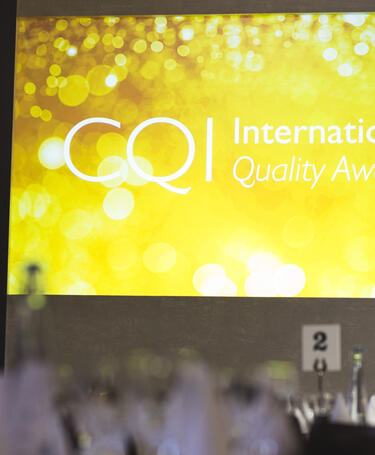
The changing nature of quality
Progress indicator
E-Squared is sponsoring the Quality Professional of the Year Award in the CQI’s International Quality Awards. In this sponsored feature, David Key, managing director at E-Squared, answers what change means for the quality profession.
How do you see the nature of quality changing?
Quality must be one of the fastest evolving professions in industry today. Its relevance and importance is increasing rapidly as it moves from a purely tactical function to one that is much more strategic. Not only is quality a key means for businesses to improve their competitive advantage or for public sector organisations to improve their customer value, but it is now central to the success of any organisational change.
What role does quality play in change?
Change – that is real and lasting change – begins with people and as we enter the next age of innovation, where machines are expected to play an increasing part in our lives, it is important to remember that. Machines don’t make change happen: people do, and the one area that will become increasingly important in leading that change, is quality.
How does Annex SL fit in with all of this?
Annex SL encapsulated the strategic role of quality within a certification framework: formalising its importance in achieving strategic business goals. Until it came along, the quality department was all too often a standalone function, seen to be quite separate from core operations. Quality control and quality assurance were in place, but rarely did they have any strategic impact.
With Annex SL that’s all changed. Firstly, the High-Level Structure which is central to that, helps define any quality initiative in the context of the organisation’s goals. Ultimately these are about the improvement of customer and stakeholder value. Secondly, once any quality initiative is agreed, Annex SL requires it to be owned and led at Board level. So, largely as a result of Annex SL, the importance of quality is right up there in lights: it is now firmly about improving value.
What are the most common challenges in implementing change?
The main challenge in implementing change is understanding how best to engage people in it. Otherwise the change programme in question – for example the introduction of a new quality certification, or a new business management system – is unlikely to be successful.
What are the rewards of managing quality-related change well?
The business becomes more competitive, the workforce is energised, the business is quicker to innovate, there’s ongoing continual improvement, the risks are controlled and reduced. Many of the issues that have happened over the past 10 years have been about the ineffective implementation of change. Quality has a huge role to play there.
Could you talk about the human aspect of implementing new technology in the work place?
It’s always about the human element. At the end of the day, even with the new wave of technologies there will still be people: if possibly fewer than before. Those people have to be energised and motivated to deliver. If they’re not, then the organisation will fail. If you look back at the implementation of automated systems in the past 10 to 15 years, many have failed because people have not been engaged. They’ve not bought into it, they’ve resisted it. I think many quality managers are struggling to accept that reality, rather than adapt to it. It requires a new set of change management skills. Quality must lead the way and manage people, rather than just address the technical aspects of any particular change.
This is particularly applicable in the aerospace industry at the moment because many see AS 9100D as being a purely technical change. It’s not. It represents a fundamental change to the culture of the aerospace industry.
How does AS 9100D represent a change of culture in the aerospace industry?
Under AS 9100D, which is in line with Annex SL, there’s a need to understand value and how it is delivered. That’s not something that’s been really looked at in the past. It’s interesting to think about where aerospace has come from and where it needs to go. In the past, the approach to risk management involved bureaucracy and heavy controls. But now we have a need to move from that to a culture that prioritises management by value. That’s a massive culture change which you don’t just change with a new system or with the introduction of a new standard.
International Quality Awards
Visit our website to find out about the winners and our category partners.
CQI International Quality Awards
Six awards, recognising quality professionals who contribute most to their organisations.
Quality World

Get the latest news, interviews and features on quality in our industry leading magazine.

